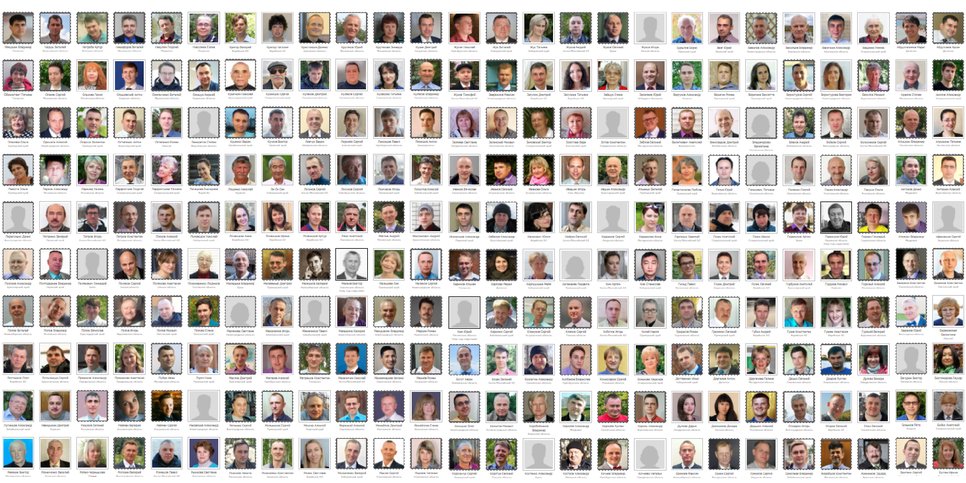Illustrative photo
Illustrative photo
400 victims of a legal collusion: the number of Jehovah's Witnesses accused of extremism is growing
MoscowIn 3.5 years after the liquidation of all Jehovah's Witnesses groups, the number of innocent victims exceeded four hundred. From Kamchatka to Kaliningrad, law-abiding believers are accused of "extremism." They lose calmness, freedom, health, and property only because they read the Bible, sing songs, and pray to Jehovah God.
As of the end of October 2020, ten believers are kept in a penal colony, 38 are in pre-trial detention centers, 26 are under house arrest, 24 are under the prohibition of certain actions and about 200 are under subscription about not leaving. In 1,166 believers' families, the searches took place.
Several believers received severe sentences for exercising their constitutional right to freedom of religion. Dennis Christensen from Oryol, Sergey Klimov from Tomsk, as well as Artem Gerasimov and Sergey Filatov from Crimea each, received 6-year sentences. For 3.5 years, the colony was appointed Konstantin Bazhenov and Aleksey Budenchuk. Feliks Makhammadiyev was sent to prison for 3 years, and Gennadiy German, Roman Gridasov, and Aleksey Miretskiy — for 2 years. All these 10 believers have already been sent to the colony. In addition, Sergey Britvin and Vadim Levchuk were sentenced to 4 years in a general regime colony, but their sentence has not yet entered into force and they are in a detention center.
Also, a number of believers were sentenced to suspended sentences and fines. For example, 8 and 7 years of imprisonment were assigned to the spouses Sergey and Valeriya Rayman from Kostroma, Gennadiy Shpakovskiy from Pskov (6.5 years), and Igor Ivashin from Yakutia (6 years). The largest fine, 700 thousand rubles, was imposed on the car mechanic from Ivanovo Yevgeniy Spirin.
At the end of October 2020, 12 believers were sentenced to imprisonment, 9 — to payment of large monetary fines. In total 27 criminal cases were solved, 148 are still under investigation. As a rule, the investigation lasts for years. While waiting for their cases to be heard, more than half of the 400 defendants, ranging from a few days to three years, were kept in pre-trial detention centers or other detention facilities. 15 believers spent in the pre-trial detention center for more than one year. Yury Saveliev, 66, has been in detention for about two years. Dennis Christensen remains behind bars the longest — for almost 3.5 years.
By the will of the authorities, the overwhelming majority of prisoners of conscience find themselves in a very difficult financial situation: 310 people have been placed on the list of extremists and terrorists by Rosfinmonitoring. In practice, this means depriving them of their jobs, business, pensions, bank accounts, and even the possibility to buy a SIM card or take out insurance.
The resulting stress undermines the health of innocent people. Four died while under investigation: Yuriy Geraskov died a week before the trial, Viktor Malkov — a year after his arrest, the mother of two childrenIrina Sidorova — 3 months after the initiation of the case, Yuriy Kim — after the first visit to the court, the same evening.
Dozens of elderly people, as well as about a hundred women, were under the pressure of the authorities. The oldest are Rimma Vashchenko from Nevinnomyssk (90) and Yelena Zayshchuk from Vladivostok (86). The presence of underage children among believers also does not stop the law enforcement agencies: 74 parents of underage children, including parents of 4 families with many children, were persecuted. Some criminal defendants themselves only recently reached adulthood. Yegor Baranov from Khabarovsk Territory and Darya Dulova from Sverdlovsk Region faced reprisals when they were 19.
The increase in the number of victims of religious persecution is bewildering amidst repeated statements by the authorities that the April 2017 Supreme Court decision did not prohibit the Jehovah's Witnesses from practicing their religion in Russia.
Commenting on the unfair verdicts against Jehovah's Witnesses, the Russian Human Rights Commissioner, Tatiana Moskalkova, said in June 2019: "These events make one think about the conflict between the constitutional right to practice one's religion individually or in community with others and the signs of extremist activity mentioned in Article 282.2 of the Russian Criminal Code.”
